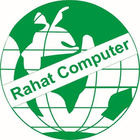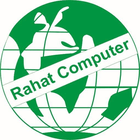Comparing SSD And HDD Storage In Desktop Computers

In the world of desktop computers, the debate over SSD (solid state drive) versus HDD (hard disk drive) storage has been ongoing for years. Both options have their pros and cons, and choosing the right one for your specific needs can be a daunting task. In this article, we will explore the differences between SSD and HDD storage in desktop computers, and help you determine which option is best suited for your personal computing needs. So sit back, relax, and let’s dive into the world of storage technology.
– Speed and Performance Comparison
When it comes to speed and performance in desktop computers, the type of storage you choose can make a significant difference. Solid State Drives (SSDs) and Hard Disk Drives (HDDs) are the two main types of storage options available for desktop computers. Let’s compare the speed and performance of these two storage options to help you decide which one is right for your needs.
Related: Buy Best Desktops in Oman
SSD Storage:
- Faster data transfer speeds
– Lower latency
– Better performance for booting up your computer and opening applications
HDD Storage:
– Slower data transfer speeds
– Higher latency
– More cost-effective for larger storage capacities
– Reliability and Durability Factors
When it comes to reliability and durability factors in desktop computers, one of the key components to consider is the type of storage used. Solid State Drives (SSD) and Hard Disk Drives (HDD) are the two main options available, each with its own set of advantages and disadvantages.
SSD:
- Faster read and write speeds
- No moving parts, less prone to mechanical failure
- Lightweight and more shock-resistant
HDD:
- Higher storage capacity at a lower cost
- Slower read and write speeds compared to SSD
- Prone to mechanical failure due to moving parts
Related: Buy Desktops in Oman
– Cost-Effectiveness and Value Proposition
When it comes to choosing between SSD and HDD storage for desktop computers, cost-effectiveness and value proposition play a crucial role. SSDs are known for their faster performance, lower power consumption, and durability. While HDDs are more affordable and offer larger storage capacities. Let’s delve deeper into the comparison between these two storage options to determine which one provides the best value.
SSD Storage
– Lightning-fast read and write speeds
- Lower power consumption
– More durable and shock-resistant
HDD Storage
– Affordable pricing
– Larger storage capacities
– Ideal for storing media files and data backups
– Recommendations for Choosing the Right Storage Option
When it comes to choosing the right storage option for your desktop computer, it’s important to consider the differences between SSD and HDD. Both have their own advantages and disadvantages, so it’s essential to weigh them carefully before making a decision.
SSD (Solid State Drive):
- Lightning-fast read/write speeds
- No moving parts, making them more durable
- Energy-efficient and quieter
HDD (Hard Disk Drive):
- More affordable for larger storage capacities
- Long-standing technology with proven reliability
- Great for storing large files like movies and photos
| Factor | SSD | HDD |
|---|---|---|
| Speed | Fast | Slower |
| Price | More expensive | More affordable |
| Reliability | Less prone to failure | Proven reliability |
Wrapping Up
In conclusion, the choice between SSD and HDD storage ultimately depends on your specific needs and budget. While SSDs offer faster performance and reliability, HDDs provide larger storage capacities at a lower cost. Consider your usage requirements and budget constraints before making a decision. Both options have their own advantages and disadvantages, so weigh them carefully to find the best fit for your desktop computer. Whichever option you choose, remember that both technologies have their place in the world of computing, and each has its own unique strengths. Ultimately, the decision is yours to make. Happy computing!



